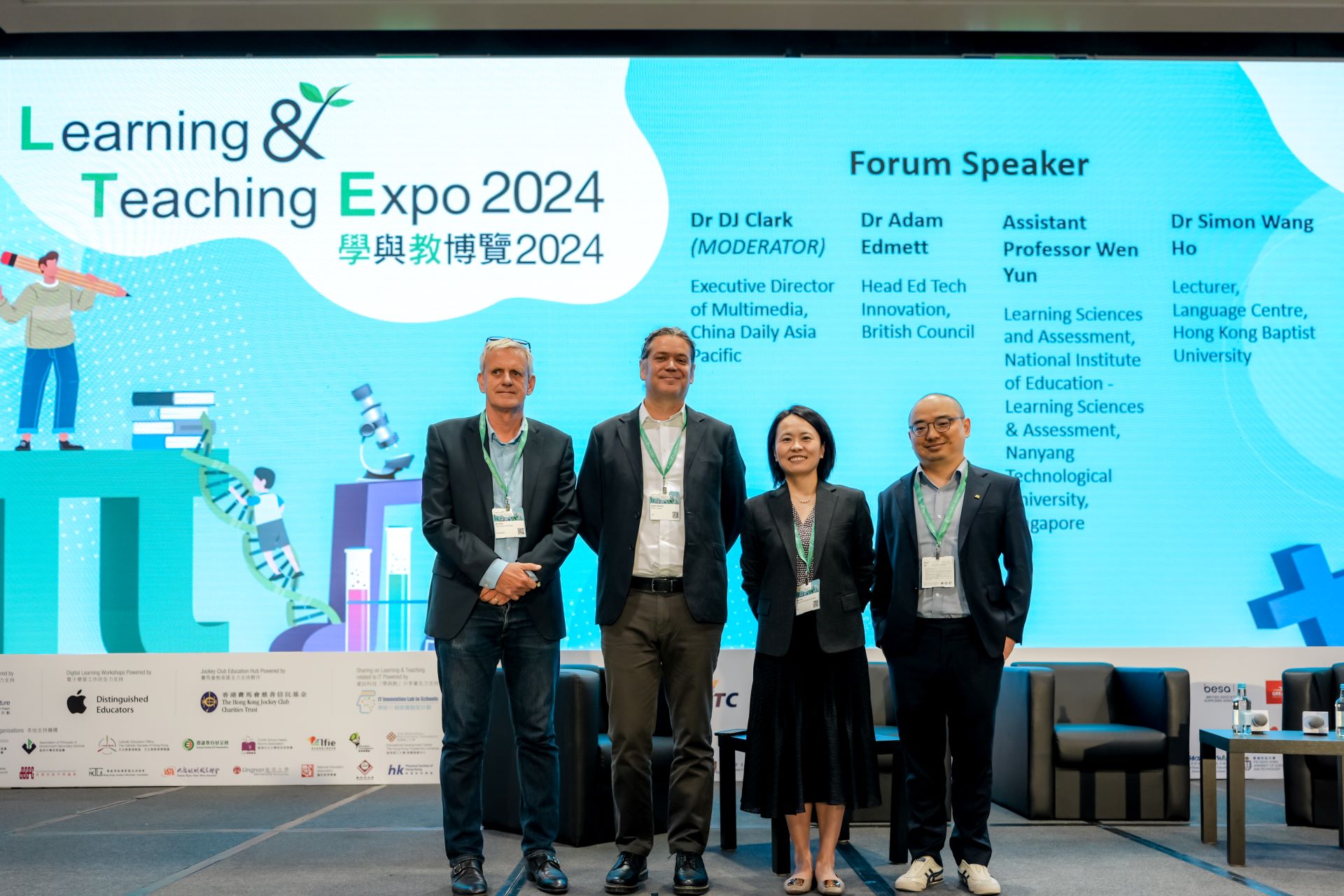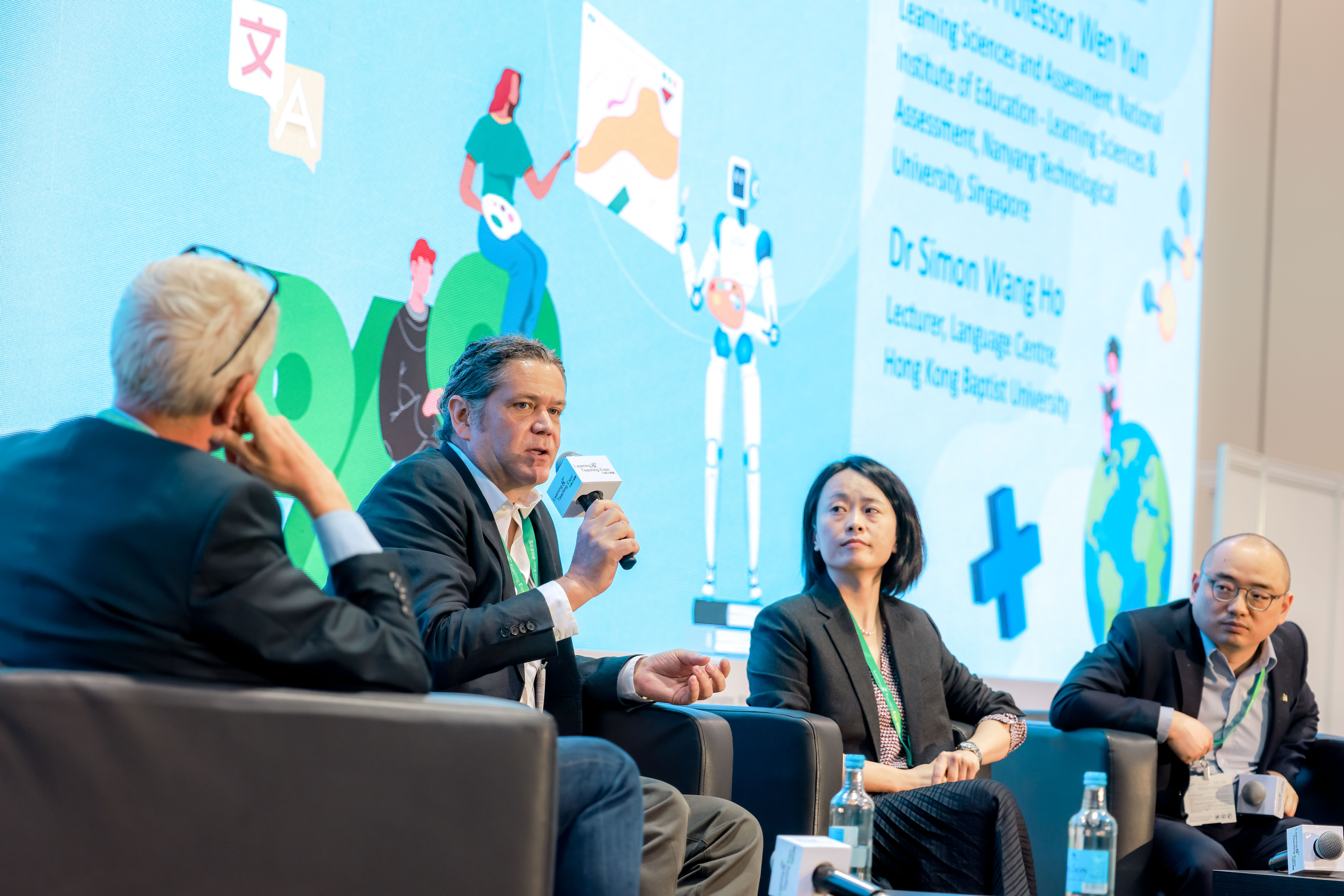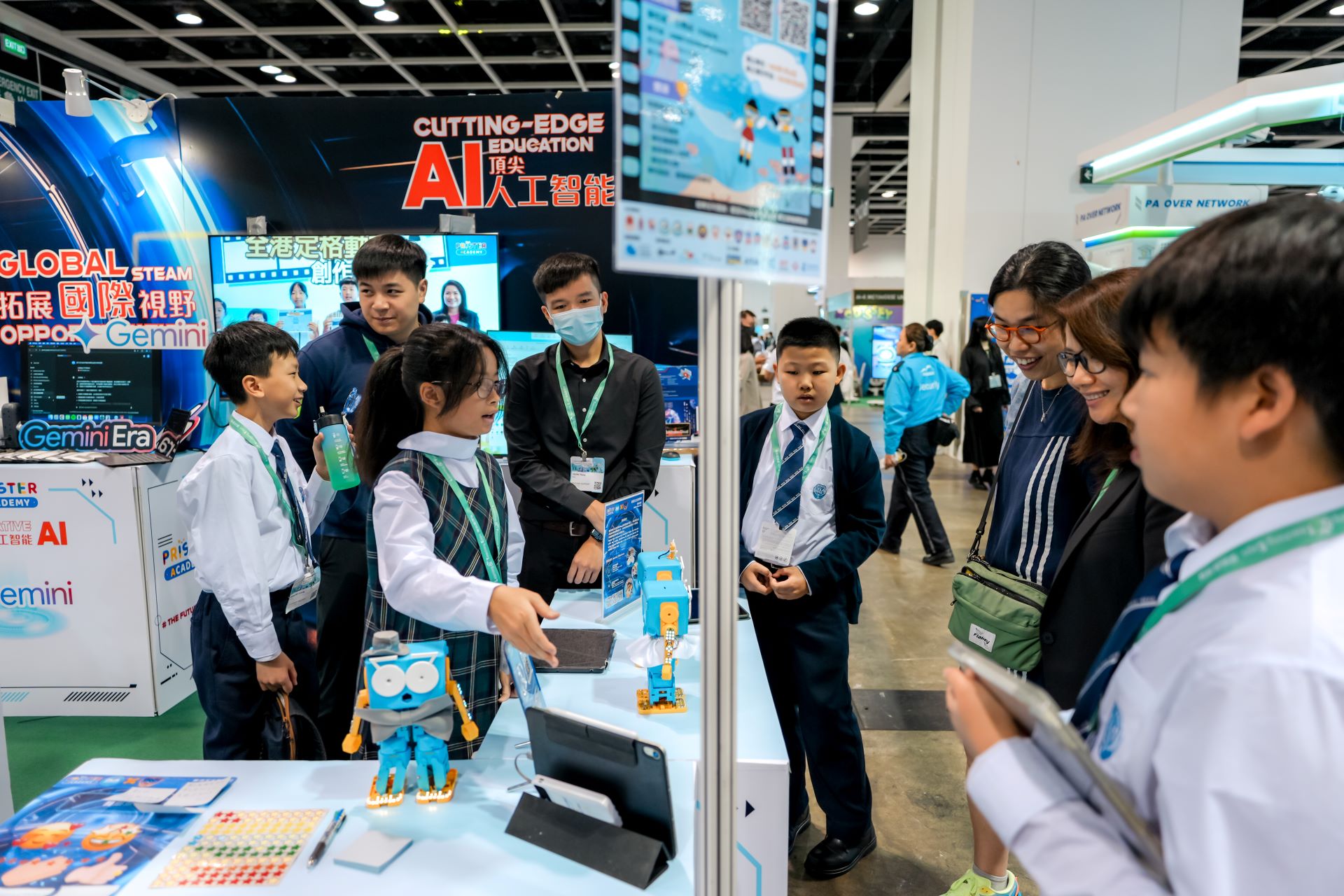
Global educators said at an annual signature expo in Hong Kong on Thursday that the education sector can call on leading-edge technologies to raise efficiencies in teaching and enrich students’ in-class learning experiences.
Themed “Shaping Education for a World of Change”, the Learning and Teaching Expo 2024, which opened on Wednesday, is slated to run for three days at the Hong Kong Convention and Exhibition Centre, during which 300 keynote presentations will be delivered and up to 600 booths featured.
Having artificial intelligence as a shared thread, speakers and exhibitors at the expo discussed diverse global education trends, highlighting AI-enabled solutions in areas such as language learning, STEAM programs, early childhood education, as well as nurturing students’ cross-cultural understanding and innate capabilities.

The expo comes as the sweeping development of AI technologies have stirred considerable attention in various fields, education included, in terms of academic research and practical applications.
ALSO READ: Chan: HK to bolster AI application, science education
Citing a report compiled by the British Council on AI and English language teaching (ELT), Adam Edmett, head of EdTech Innovation of the British Council, who participated in a panel discussion presented by China Daily at the expo, said that a systematic literature review revealed that the number of peer-reviewed studies on AI and ELT over the past 10 years saw an exponential increase from the year 2022 to 2023.
“In 2023, there was more AI-related research (in ELT) than that conducted in the whole nine years previously, and in 2024, it’s off the scale, as we can imagine,” said Edmett, applauding those who decided to combine an expo and in-depth academic discussions as invaluable for keeping abreast of the latest applications of AI in education, their implications, and potential areas for improvement.
He went on to urge caution amid the mass hype around AI integration in education. “Challenges are often underreported. There’s often positive publication bias,” Edmett said.

This view was shared by Wen Yun, an assistant professor at Nanyang Technological University’s Learning Sciences and Assessment Academic Group at the Singapore National Institute of Education, who said that a “people-centered” approach should still steer this AI revolution in education during the same discussion.
Speaking of “personalized teaching and learning”, an area reputed to be full of promise with innovative incorporation of AI technologies, Wen, whose team at the university has designed an AI-powered Chinese vocabulary learning system that helps generate multimodal feedback to encourage students’ engagement, said that even with such technical facilitators, human teachers remain essential for emotional support.
READ MORE: Generation AI: Education reluctantly embraces the bots
According to the Beijing Consensus on AI and Education, published by UNESCO in 2019 and the first-ever document to offer guidance on how to best harness AI technologies for achieving the Education 2030 Agenda, adequate efforts should be made to ensure the adaptation of AI technology to empower teachers rather than replace them, to ensure ethical, transparent and auditable use of educational data, among other recommendations that ensure its benefits outweigh the risks.


